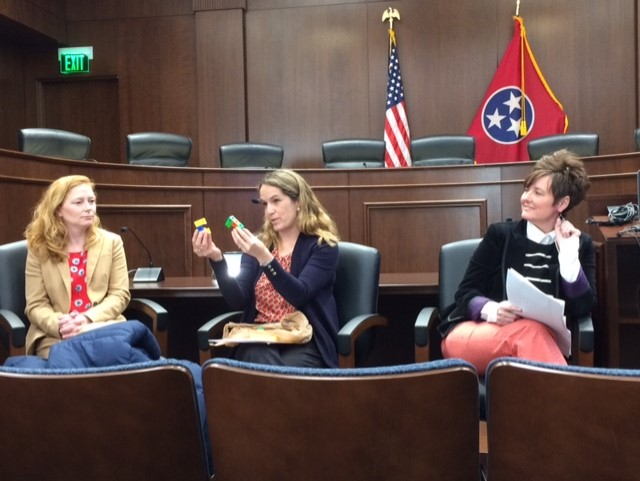In education, teachers are where the rubber meets the road. Simply put, teaching is the number one contributor to student achievement.
The work of early grade teachers is especially critical to help kids establish a strong learning foundation that enables them to continue strong learning and achievement into third grade. Student proficiency in third grade is a vital determinant for every student and their respective years that follow, including high school graduation and post-secondary success. Improving third grade student performance is an imperative for Tennessee.
Two things truly matter in highly effective teaching – first, good curriculum – what they are teaching; and second, how teachers teach, typically called “teaching practices” or “pedagogy” in policy terms. This second point is especially important for teaching young children, who learn in different ways than older children because of their unique stages of cognitive, social, and physical development.
Because the early grades are critical and complex, there is increasing effort to understand how the most effective teaching practices are impacting children’s academic gains and social-emotional development despite the wide-ranging variables among students. The focus is to understand what practices work best, no matter the curriculum, and then do more of it.
“Through research we are able to objectively identify teaching practices that will most heavily impact learning in the early years,” said Dr. Caroline Christopher, Ph.D., research associate, Peabody Research Institute, Vanderbilt University. “We now know more than ever about what works.”
Christopher, Vanderbilt pre-doctoral fellow Katherine Newman and Lenoir City early education director Melody Hobbs shared their insights on effective teaching models with the Tennessee General Assembly Early Education Caucus on Tuesday, March 26.
Vanderbilt is at the forefront of researching best practices among young Tennessee students. From the 2014-15 to 2017-18 academic years, Vanderbilt studied 100 early education classrooms to understand what teaching practices led to the greatest gains in academic outcomes.
The result was an identification of eight essential teaching practices that increase student outcomes in language, literacy and math as early as pre-kindergarten – the recognized precursors to third grade achievement.
Dubbed the “Magic 8,” these essential teaching practices are quickly becoming the playbook for more innovative teaching in pre-k and kindergarten. The Magic 8 include practices such as reducing time spent in transitions; creating a positive climate in the classroom; fostering high student engagement in learning; and providing more math opportunities.
The value of the Magic 8 is that they are curriculum neutral. They are teaching practices that can and should be used with any state-approved early childhood curriculum.
The Magic 8 are gaining traction and contributing to excitement in Pre-K to 3rd education because they combine a focus on high expectations and string academic standards with developmentally-appropriate teaching – something the field has been missing for years. The teaching practices are now included in the Tennessee Department of Education definition of quality Pre-K, which means the practice model is being used as an instrument for scoring Pre-K grant applications.
That said, incorporating these practices into the culture of established systems is a slow turn. Some of the teaching practices are easier to change than others. Christopher emphasizes that systems and schools should focus on coaching to provide teachers with instruction on how to effectively employ the Magic 8 in their classrooms and schools. This often takes much more than a course or two in a teacher prep program. Excellent teaching practices require lots of practice coupled with lots of good job-embedded coaching for teachers to master them.
“No one expects a professional basketball player to know how to shoot by learning the psychics of motion in a classroom” said Lisa Wiltshire, TQEE’s Policy Director. “You have to be on the court, day after day, practicing while expert coaches guide your efforts. The same is true for teaching. When it is done well teaching is much harder than it looks, but it doesn’t just happen automatically.”
All three participants noted that teachers do their best when they are prepped, mentored and coached – with lots of time for practice on their own and with other teachers. This means ample grade-level planning time, strong partnerships between school districts and teacher prep institutions, and coaches and principals that support teachers as instructional leaders, providing frequent feedback and encouragement.
Vanderbilt’s next phase of the research, beginning in fall 2019, will build on the original pre-k study and the Magic 8 research by examining what is working and not working in K-3 classrooms across the state. This will help policymakers and stakeholders unpack the question of why early gains are not always sustained over the course of elementary school. One outcome of the study should be a “Magic 8” of sorts for K-3, aligned with the Pre-K Magic 8, and applicable to any curricula.
The findings from that study are due to be released in 2020.
You might also be interested in: Why Does Early Childhood Education Matter





